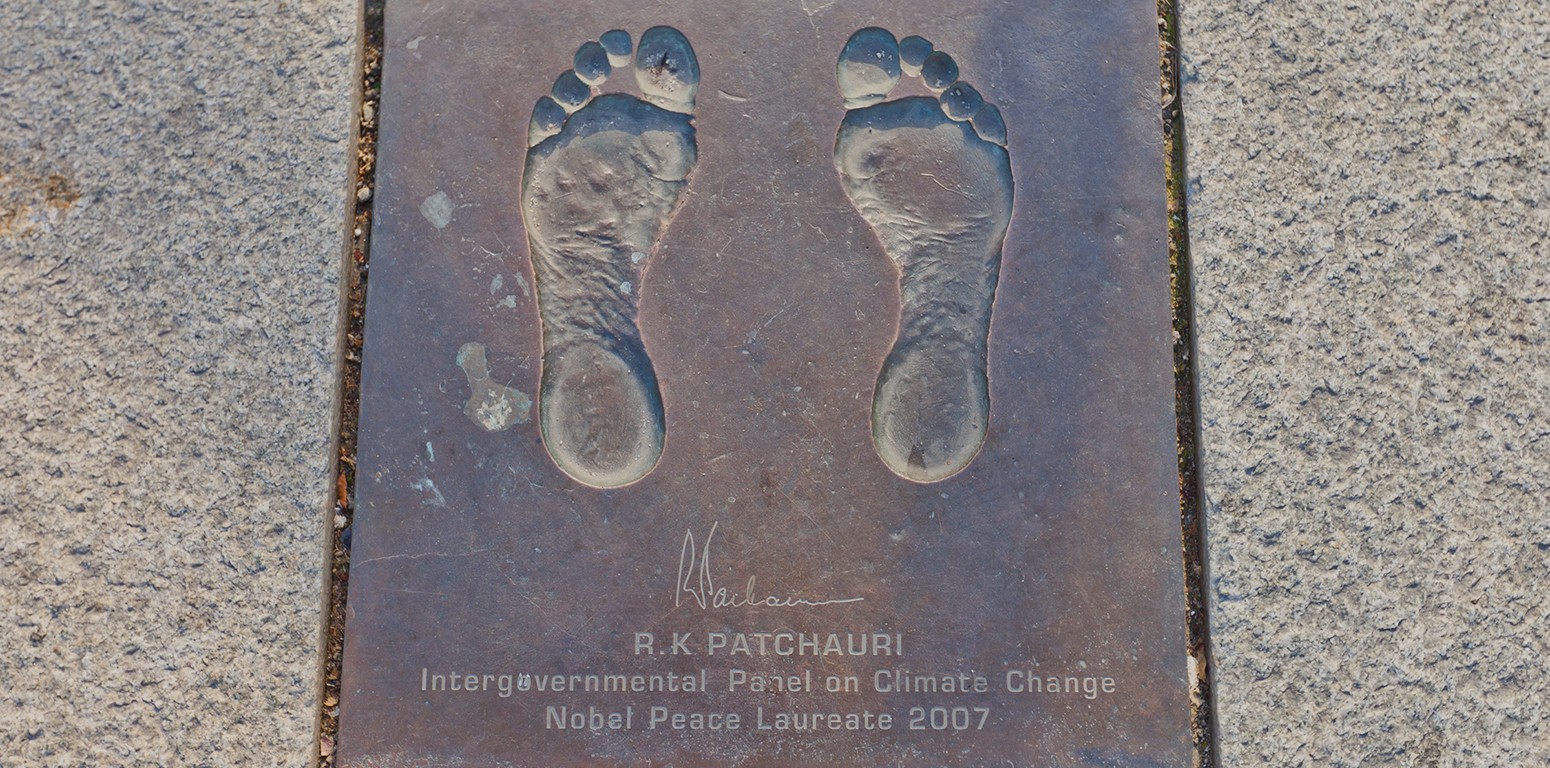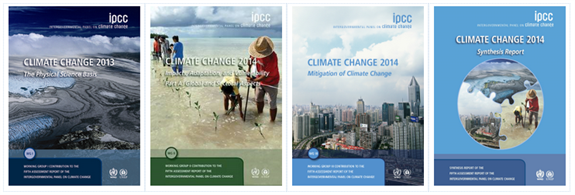
Pachauri: IPCC should take official role in assessing country pledges to curb climate change
Roz Pidcock
02.09.15Roz Pidcock
09.02.2015 | 3:45pmThe outgoing chair of the Intergovernmental Panel on Climate Change (IPCC), Dr Rajendra Pachauri, has a new vision for the organisation’s future.
Traditionally focused on collating the science underpinning climate change, Pachauri’s proposals would seem to take the IPCC in a distinctly more political direction.
Suggesting the panel “moves forward with the times and responds to changing expectations”, Pachauri wants the IPCC to take an official role in assessing countries’ pledges to reduce greenhouse gas emissions, and in totting up whether they add up to enough to meet global climate change targets.
Stepping down
Pachauri has chaired the IPCC for the past 13 years, overseeing the publication of two major assessment reports. Published every five or six years, the job of these reports is to pull all the latest scientific evidence on how and why the climate is changing into one definitive tome.
The IPCC’s Fifth Assessment Report (AR5)
With the IPCC’s Fifth Assessment Report (AR5) completed last October, the IPCC is in self-reflection mode. This is standard practice after every major report, but this time is perhaps the last formal opportunity for Pachauri to make his thoughts known before stepping down as Chair later this year.
The IPCC has posted several documents on its website, containing a number of proposals due for consideration when the panel meets at the end of the month in Nairobi, Kenya. One such document is the Chairman’s own ” Vision Paper on the Future of the IPCC“.
“Enormous global value”
Established in 1992, the official focus for international climate policy is the United Nations Framework Convention on Climate Change (UNFCCC). The next round of UNFCCC talks (COP21) take place in Paris in December, where all 192 countries have committed to drawing up a new global climate deal.
In the coming months, each country will outline what action it intends to take under this global commitment. These are known collectively as Intended Nationally Determined Contributions (INDCs).
Past IPCC’s scientific assessment reports have provided a basis for the UNFCCC talks. But Pachauri suggests the IPCC should develop a new “product”, a different style of report produced annually to more directly feed into international climate negotiations.
Rather than colating scientific evidence on climate change, the purpose of the IPCC’s new annual report would be to tally up the pledges by each country towards cutting greenhouse gas emissions, and assess whether they collectively add up to enough to limit warming to two degrees above pre-industrial levels. This is internationally-accepted target for avoiding “dangerous” climate change.
As part of its climate change projections, the IPCC considers a scenario in which global temperature stabilises at two degrees, known as RCP2.6. Pachauri suggests the IPCC is “well within its right” to extend its role beyond detailing the scientific basis for the two degree target to include an assessment of whether or not we’re on track to achieve it. He says:
“[A]n extremely valuable product that [the IPCC] could produce to serve progress under the UNFCCC is to bring out a brief and accurate report annually indicating how the INDCs when summed up relate to the RCP 2.6 scenario. Such a product would be of enormous value to the global community.”
A new direction
Since its inception in 1988, the IPCC’s mandate has been to provide a “usefulness for the UNFCCC and the public at large”, says Pachauri. Its objective is to “provide rigorous and balanced scientific information to decision makers” and to be policy-relevant but never “policy prescriptive”, says the IPCC’s official website.
Pachauri’s proposal for a new annual report is all part of his vision for how the IPCC can “fulfill this mandate more effectively”. And the time is ripe to do so now, he adds:
“COP 21 and the completion of the AR5 also provide a unique opportunity for aligning the work of the IPCC with activities and decisions being undertaken under the UNFCCC.”
At this point, Pachauri isn’t proposing the IPCC carries out a full scale review of individual INDCs to assess whether they’re likely to be effective, for example. Such a review has garnered strong support from some countries, including EU and South Africa, but has proved unpopular with India.
In practice
What would an annual report summing up countries’ INDCs look like in practice? The details are yet to be firmed up but would involve a new dedicated task force, says Pachauri:
“The manner in which this report is to be produced can be determined, and ideally could be entrusted to a task group to be set up by the Panel, which would have sufficient scientific expertise and which would function within a short deadline”.
Pachauri is clear the IPCC’s core task of producing scientific assessment reports must not be compromised by taking on any new responsibilities. He urges:
“[It is] useful for the Panel to keep in mind what makes the essence of IPCC assessments, namely scientific rigor and comprehensiveness. It is essential that any format decided for the future products of the IPCC does not allow for any compromise on their robustness, comprehensiveness, rigour and transparency”.
He also states that any “future products” must serve a clear purpose in the UNFCCC process, aligning with “the requests, needs and time schedule of the our main end user, the UN Framework Convention on Climate Change”.
While Pachauri’s proposals would seem to fall within a supportive rather than a prescriptive role, they do suggest a greater involvement in international climate policy than we’re used to hearing from the IPCC. Whether Pachauri’s proposals are accepted or not is a matter for the panel to discuss later this month. But doing so would seem to signal a new, more active phase in the IPCC’s remit.
Main image: Bronze cast of bare feet of Rajendra Kumar Pachauri, Nobel Peace laureate in Stavanger, Norway.
-
Pachauri: IPCC should take official role in assessing country pledges to curb climate change


